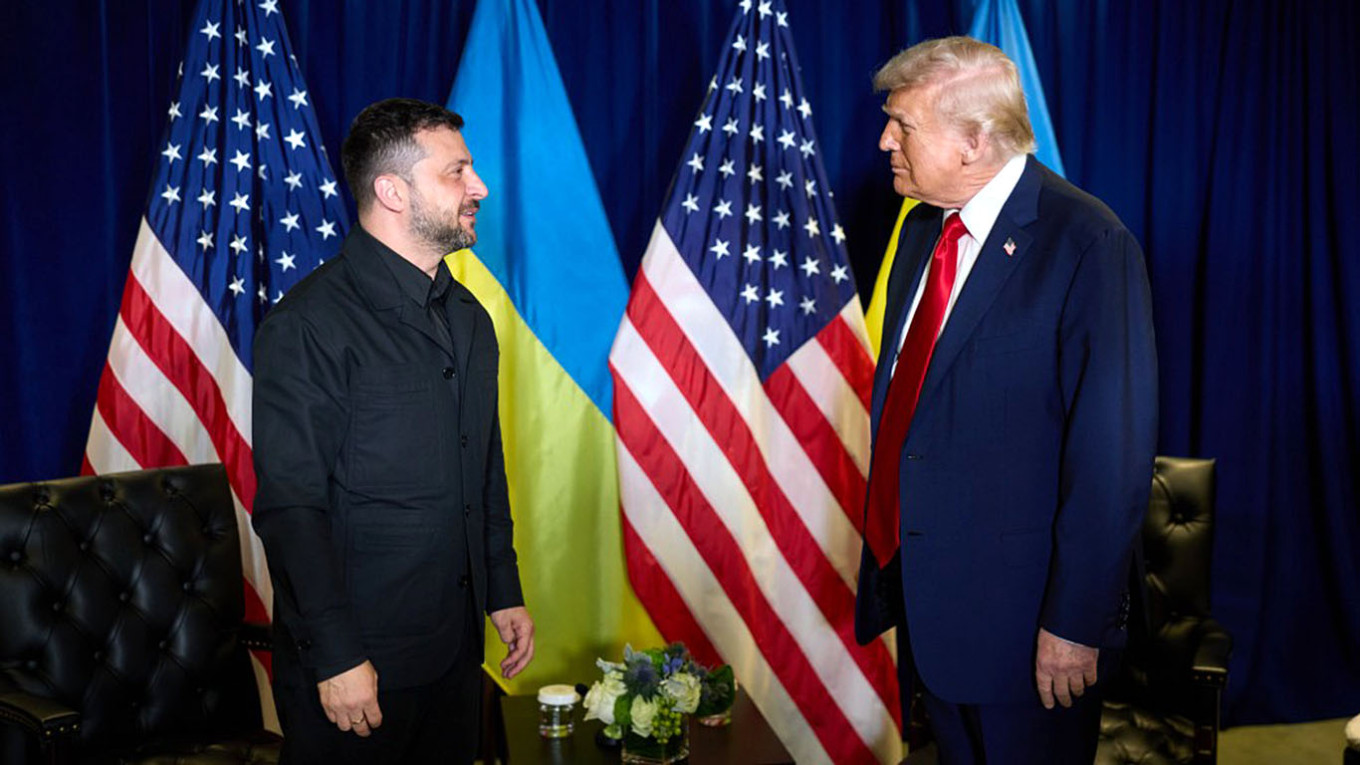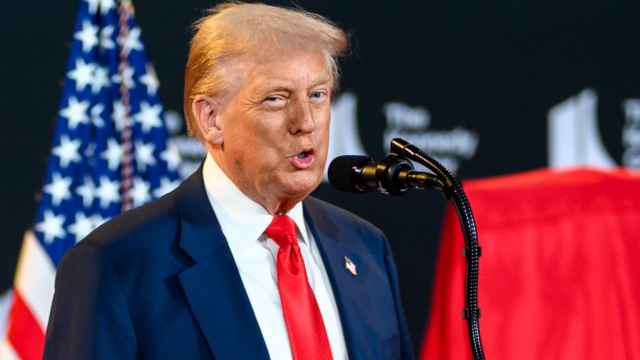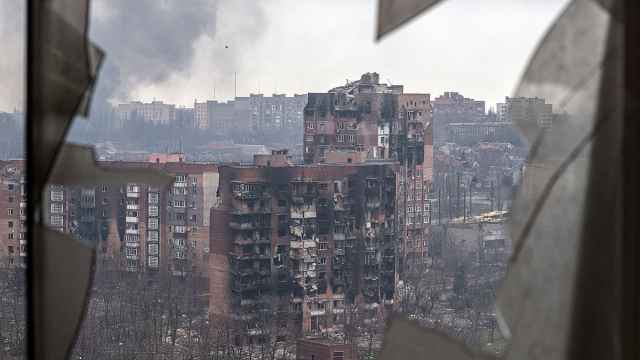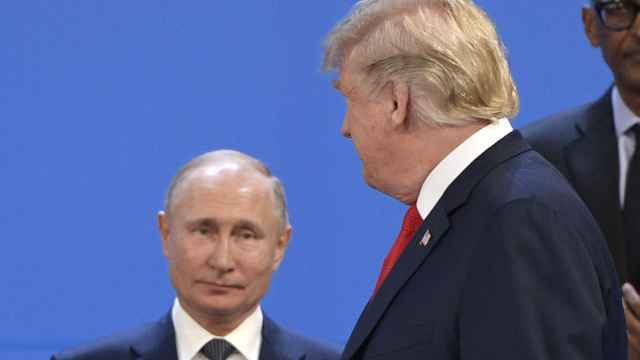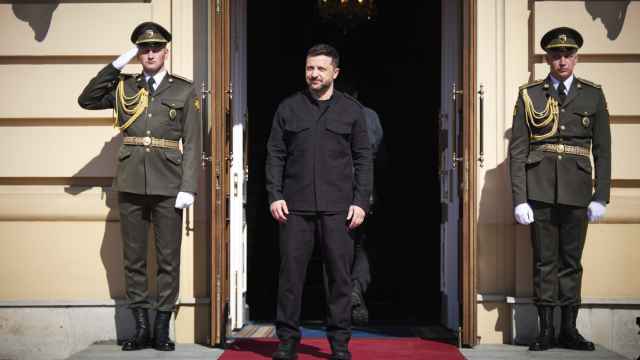With Russia’s full-scale war on Ukraine still raging eight months after he promised to end it, President Donald Trump has gone from berating Ukraine’s Volodymyr Zelensky and rolling out the red carpet for Russia’s Vladimir Putin to seemingly changing his entire outlook with the press of a “post” button.
“I think Ukraine, with the support of the European Union, is in a position to fight and WIN all of Ukraine back in its original form,” Trump wrote on his Truth Social platform, calling Moscow’s army a “paper tiger.”
Yet experts remain divided on whether or not the about-face signals a genuine policy shift toward giving Ukraine what it needs to win and away from Trump’s efforts to act as a mediator.
“It is a massive rhetorical shift,” Samuel Greene, professor at King’s College London, told the BBC.
Throughout Trump’s changing rhetoric on the war since taking office, Greene noted, one thing has remained consistent: his belief that Ukraine will need to make a deal sacrificing territory.
“This is the first time that he’s said publicly that that might not be the only outcome,” he continued. “That said, he’s shifted before… I think it would be unwise to assume that this is now going to be the permanent position.”
Mikhail Troitskiy, a visiting professor of security studies at Tufts University’s Fletcher School of Law and Diplomacy, told The Moscow Times that he believed the president’s words should be taken sincerely.
“I would not discount Trump’s rhetorical overtures as cheap talk,” he said.
For Trump, the announcement could be intended as a strategic play, experts said.
On one hand, it could potentially nudge the Kremlin into a negotiating position if it believes the U.S. is no longer hewing to its narrative.
On the other, by specifically naming the EU as Ukraine’s military benefactor, Trump can distance the U.S. from a negotiation process that, despite months of shuttle diplomacy and a high-profile summit with Putin in Alaska, has not produced even a meeting between Putin and Zelensky.
“So the narrative around what he is saying has shifted but he still seems to be making it about distancing the U.S. from leading on the conflict,” Neil Melvin, director of International Security at the Royal United Services Institute, told Reuters. “He’s putting it back onto Europe all the time.”
The U.S., Ukraine and three European countries recently inked a multimillion dollar weapons agreement to keep American munitions flowing to Kyiv, whose cost is estimated at $825 million.
Zelensky welcomed Trump’s support, noting that the two leaders have improved their relationship since their Oval Office falling-out in February.
“I think we have a better [relationship] than before,” he said after meeting with Trump earlier this week. “I think the fact that Putin was lying to President Trump so many times also made a difference between us.”
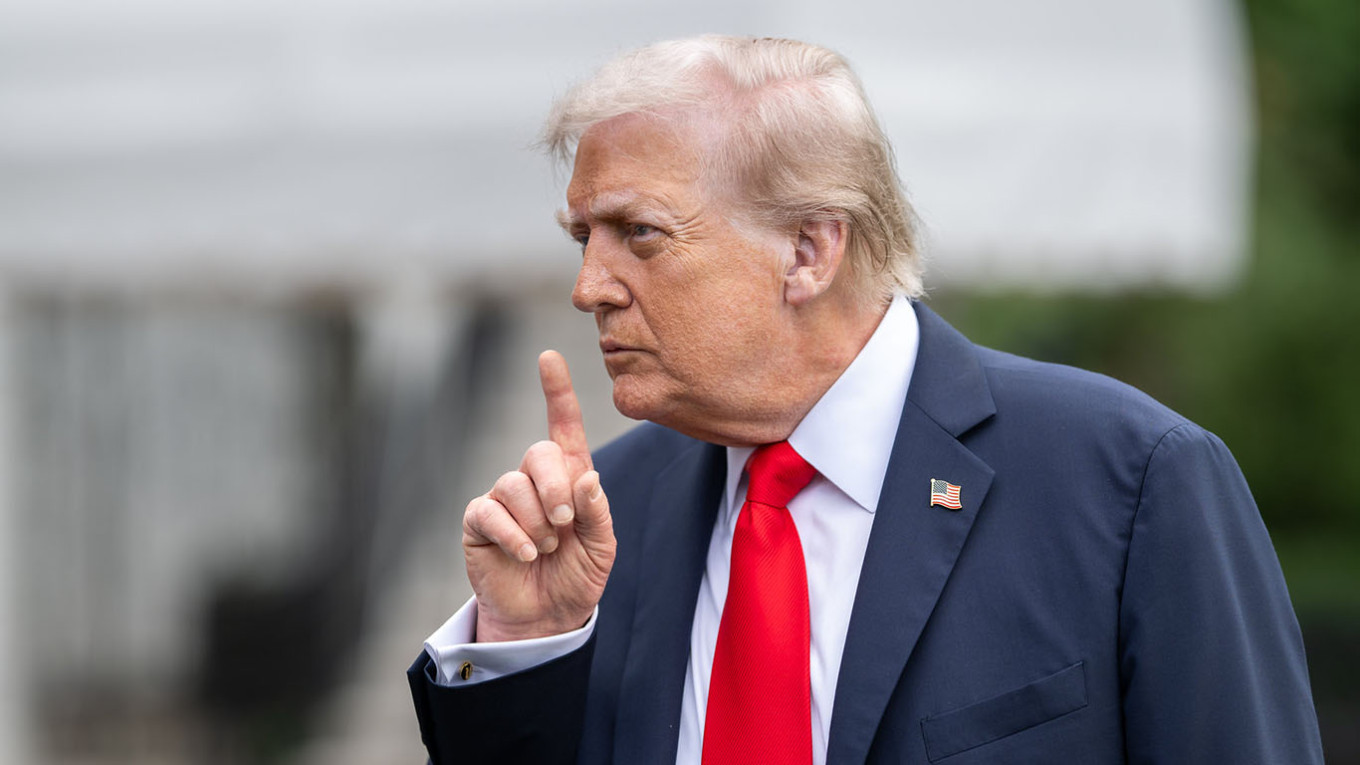
Conversely, Trump has voiced increasing frustration with Putin. On Monday, he refused to comment on if he still trusted the Russian leader, saying only “I’ll let you know in about a month from now, okay?”
In his post, Trump attributed his revelation to his evolving understanding of Ukraine and Russia’s military and economic situations.
Tatiana Stanovaya, a senior fellow at the Carnegie Russia Eurasia Center, wrote that Trump’s shifting thinking on the war indeed reflects “new realities.”
“This spring and summer, doubts grew in the West that Ukraine could hold out,” Stanovaya wrote on social media.
But despite incremental gains in eastern Ukraine, the Russian military failed to achieve a strategic breakthrough this summer, and it is difficult to imagine the Ukrainians ever accepting Putin’s conditions for ending hostilities.
Moreover, Russia’s economy is on increasingly unsteady footing, something that could guide Putin’s efforts to eventually seek an end to the war.
Troitskiy, the expert at Tufts Fletcher School, noted Trump’s frustration with the lack of progress since his one-on-one meetings last month with Putin and Zelensky.
“Disappointed with progress in peace negotiations — and in particular the Kremlin’s uncompromising stance — Trump was likely asking his advisors about possible ways to apply additional pressure on Moscow,” he said. “Now Trump’s informed advisors told him that if specific types of weapons are supplied to Ukraine, Kyiv may have a shot at recapturing land from Russia.”
The Kremlin, he added, has been “counting on Donald Trump’s mediation approach favorable to Russia — so Trump’s change of posture may well elicit significant concern in the Kremlin.”
In that regard, Moscow took a measured tone in response to Trump, with Kremlin spokesman Dmitry Peskov dismissing the label of Russia’s forces as a “paper tiger” and the notion that Ukraine could win back territory.
“Mr. Trump heard about what’s happening from Zelensky’s perspective. And, apparently, at this point, that version is what led to the assessment we heard,” Peskov said.
It was not immediately clear how exactly U.S. involvement in efforts to end the war would change going forward.
On Tuesday, Secretary of State Marco Rubio said the war would end through negotiations, a prospect that would be complicated by European countries arming Ukraine, as Trump suggested.
In the meantime, Stanovaya, the Carnegie expert, theorized that Trump’s sudden shift — and Moscow’s reaction — may actually push the chance of peace even further away.
“What’s scary here is the risk of a sharp escalation in fighting,” Stanovaya wrote. “Ukraine isn’t cracking, Trump’s no longer an ally... So what’s left? Double down on the war machine.”
A Message from The Moscow Times:
Dear readers,
We are facing unprecedented challenges. Russia's Prosecutor General's Office has designated The Moscow Times as an "undesirable" organization, criminalizing our work and putting our staff at risk of prosecution. This follows our earlier unjust labeling as a "foreign agent."
These actions are direct attempts to silence independent journalism in Russia. The authorities claim our work "discredits the decisions of the Russian leadership." We see things differently: we strive to provide accurate, unbiased reporting on Russia.
We, the journalists of The Moscow Times, refuse to be silenced. But to continue our work, we need your help.
Your support, no matter how small, makes a world of difference. If you can, please support us monthly starting from just $2. It's quick to set up, and every contribution makes a significant impact.
By supporting The Moscow Times, you're defending open, independent journalism in the face of repression. Thank you for standing with us.
Remind me later.



